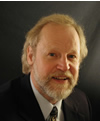Carter McNamara
Biography
Carter is a nationally recognized expert in organizational development and change. He has 25 years of real-world management experience in a variety of organizations, including startup, public-private, nonprofit and corporate. He is founder and developer of the Free Management Library(sm), one of the world's largest collections of well-organized, free, on-line resources for personal, professional and organizational development at the Free Management Library. He is also founder of the Free Micro-eMBA (for-profit and nonprofit versions) available from the Library.
He pioneered development of the peer coaching group process, a format of Action Learning, which can be used to solve problems and achieve goals, enrich training programs, cultivate strong networks, quickly spread core coaching skills and structure action-oriented support groups.
In 1999, Carter won the University of St. Thomas’ Business Excellence Award for donating over 200 hours a year for four years to local nonprofit organizations. In 2004, the Minnesota Organization Development Network awarded Carter, “OD Practitioner of the Year,” in part for his many contributions to nonprofits and the profession of OD.
Carter holds a BA in Social and Behavioral Sciences, BS in Computer Science, MBA from the University of St. Thomas (Minneapolis), and a PhD in Human and Organization Development from The Union Institute (Cincinnati).
Among his many publications are:
- Field Guide to Consulting and Organizational Development (for Business and Government)
- Field Guide to Leadership and Supervision in Business
- Field Guide to Developing and Operating Your Nonprofit Board of Directors
- Field Guide to Nonprofit Strategic Planning and Facilitation
- Field Guide to Nonprofit Program Design, Marketing and Evaluation
- Field Guide to Leadership and Supervision for Nonprofit Staff
- Field Guide to Consulting and Organizational Development With Nonprofits
Meeting - 03/15/12
Attendees: Marcin Jakubowski, Carter MacNamara, Aaron Makaruk
Topic: Resource Development and Strategic Planning
Notes
Letter of Confirmation: IRS mails this to us to confirm that they have received our f1023 application.
- Before submitting anymore grants, make sure we have this.
LC3 - non-profit/for-profit organization
- It's better to form the non-profit organization before spinning off a for-profit entity. Do not do it the other way around.
- npEnterprise - resource for starting a non-profit/for-profit hybrid.
Resource Development - 8 forms:
- Grants
- Corporate Donations
- Government Grants
- Individual Contributions
- In-Kind Donations
- Collaboration
- Volunteers
Things that foundations want to know:
- Who are our competitors?
- Is there a bona fide social need that we are going to address?
- This needs to be proven by a Community Needs Assessment. Don't reinvent the wheel - a CNA is difficult to do, and many organizations exist that do this kind of research. Sources for CNAs: librarians, census data, Urban Leage, NAACP, etc.
- Change the name of our evaluations survey, because it makes us sound inauthentic - change it to a volunteers recruiting tool.
- Can Open Source Ecology meet that need?
- Outcomes can prove this.
- Can we sustainably meet that need over time?
- Are we viable financially?\
- Do we have suitable management?
- Are we collaborating?
Funding resource development/development officers:
- Overhead - state that a certain percentage of the grant covers overhead/administration of the grant.
The Ask - when speaking to foundations, teach board members to:
- Describe what the social need is.
- Describe what is required to meet the social need.
- Describe what Open Source Ecology is doing to meet that need.
- Describe what our successes have been.
- Directly ask the foundation for an investment - The Ask.
Strategic Planning:
- Make a plan for one year of solid strategy.
- Find someone to volunteer to do this - Human Resources Department heads from corporations are a good resource.
- What are we working on, what are we going to do.
- After that, develop a strategic vision and a grand vision.
